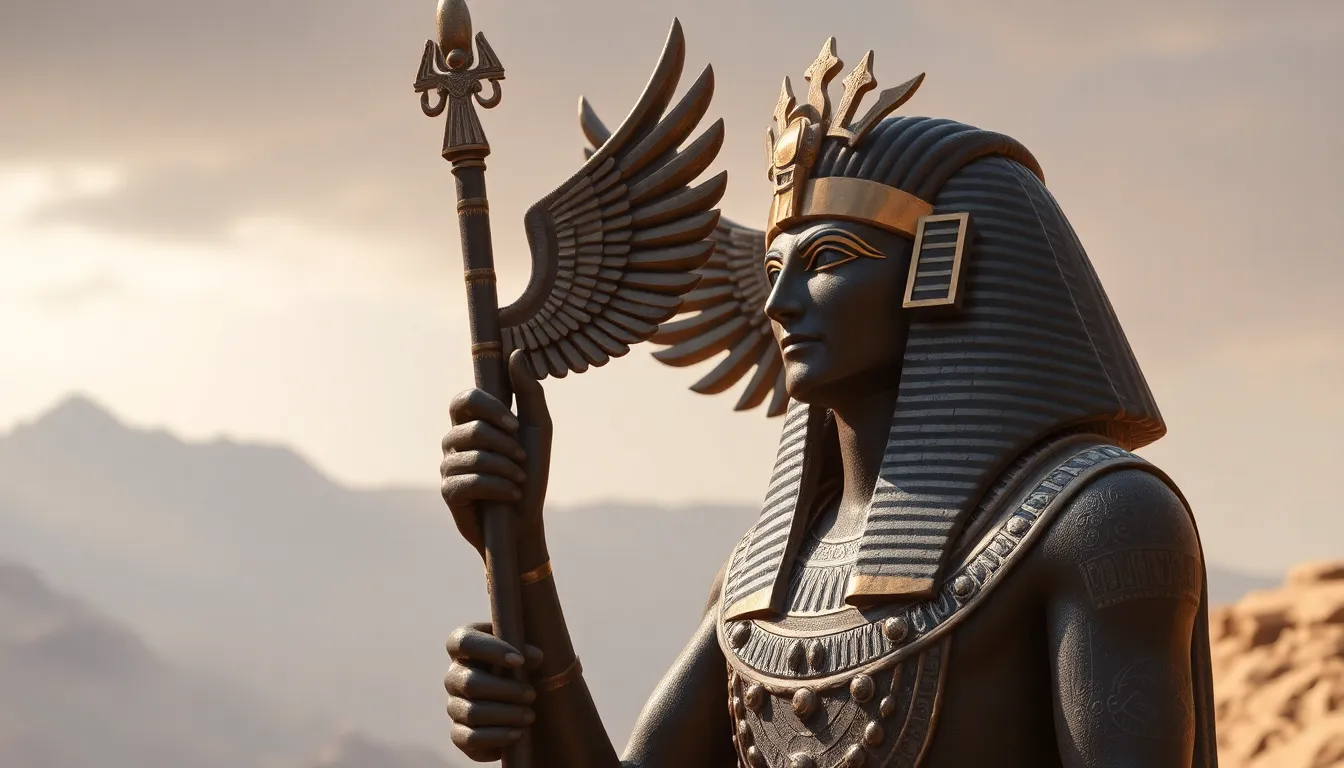The Importance of Divine Kingship in Egyptian Rituals
I. Introduction
Divine kingship in ancient Egypt refers to the belief that pharaohs were not only political leaders but also divine figures, chosen by the gods to govern on their behalf. This unique concept positioned the pharaoh as a vital intermediary between the divine and the mortal realms, deeply influencing the cultural and religious landscape of ancient Egyptian society.
The significance of divine kingship extended beyond mere governance; it permeated every aspect of life, from politics to religion, and was essential in maintaining order and stability within the kingdom. This article aims to explore the multifaceted nature of divine kingship, its historical context, theological foundations, ritual practices, and its enduring legacy.
II. Historical Context of Divine Kingship
The emergence of divine kingship in ancient Egypt can be traced back to the Early Dynastic Period, around 3100 BCE, when the first pharaohs unified Upper and Lower Egypt. Key figures such as Narmer (also known as Menes) played a crucial role in establishing this concept, setting the tone for future rulers.
Throughout different dynasties, divine kingship evolved, with notable pharaohs such as Ramses II and Akhenaten expanding the idea of the divine right to rule. While Ramses II emphasized military achievements and divine heritage, Akhenaten shifted focus to a monotheistic worship of the sun god Aten, demonstrating the adaptability of divine kingship to changing religious landscapes.
III. Theological Foundations of Divine Kingship
The relationship between pharaohs and gods was central to the concept of divine kingship. Pharaohs were seen as living gods, embodying the attributes of various deities, such as Horus, the god of the sky and kingship, and Osiris, the god of the afterlife. This divine status was crucial for legitimizing their authority.
The concept of maat, representing cosmic order, truth, and justice, was intrinsically linked to kingship. The pharaoh’s duty was to uphold maat, ensuring harmony and stability in society. Rituals such as the Sed festival reinforced the pharaoh’s divine status and reaffirmed his commitment to maintaining maat.
IV. Ritual Practices Associated with Divine Kingship
Ritual practices were essential in expressing and solidifying the divine nature of kingship. Coronation ceremonies, for instance, were elaborate events symbolizing the pharaoh’s ascension to the divine throne. These ceremonies often included:
- Rituals of purification
- Investiture with the crown and gods’ symbols
- Public proclamations of the pharaoh’s divine right to rule
Daily rituals performed by the pharaoh included offerings to the gods, attending to the sacred temples, and participating in festivals. Major festivals, such as Opet and the Heb Sed, celebrated the divine nature of kingship, reinforcing the connection between the pharaoh and the divine.
V. Symbolism and Iconography of Divine Kingship
Artistic representations of pharaohs as divine beings were prevalent in ancient Egyptian culture. These depictions often included:
- Hieroglyphics illustrating the pharaoh’s accomplishments and divine heritage
- Statues and reliefs showcasing the pharaoh in the company of gods
The use of symbols like the crook and flail, representing the pharaoh’s role as a shepherd and protector of his people, and the ankh, symbolizing life, were integral to rituals and iconography associated with divine kingship. Architectural sites such as the grand temples and the pyramids served not only as tombs but also as monuments to the divine authority of the pharaohs.
VI. The Role of Divine Kingship in Maintaining Order
Divine kingship was pivotal in maintaining political stability in ancient Egypt. The belief in the divine mandate conferred upon the pharaoh positioned him as a necessary ruler for the preservation of order and prosperity. The pharaoh acted as a mediator between gods and people, ensuring that the will of the gods was carried out and that the people remained in harmony with the divine order.
However, failures to uphold divine kingship could have dire consequences, including:
- Political upheaval
- Natural disasters interpreted as signs of divine displeasure
- Loss of public support and legitimacy
VII. Divine Kingship in the Afterlife Beliefs
The beliefs surrounding divine kingship extended into the afterlife. The pharaoh’s journey to the afterlife was seen as a continuation of his divine role. Burial rituals, including elaborate mummification and the construction of grand tombs, were designed to ensure a successful passage into the afterlife and maintain the pharaoh’s divine status posthumously.
The impact of divine kingship on beliefs about immortality can be seen in the texts and artifacts placed in tombs, which often depicted the pharaoh in divine contexts, underscoring the continuity of their divine nature beyond death.
VIII. Conclusion
In summary, the concept of divine kingship played a crucial role in shaping the rituals and cultural practices of ancient Egypt. From the historical context of its emergence to the theological foundations and ritual practices, divine kingship was essential for maintaining order and stability within the society.
The legacy of divine kingship continues to influence contemporary discussions of power and divinity, reminding us of the profound connection between leadership, belief, and societal order. As we reflect on these ancient practices, we gain insight into the enduring human quest for meaning and legitimacy in governance.




